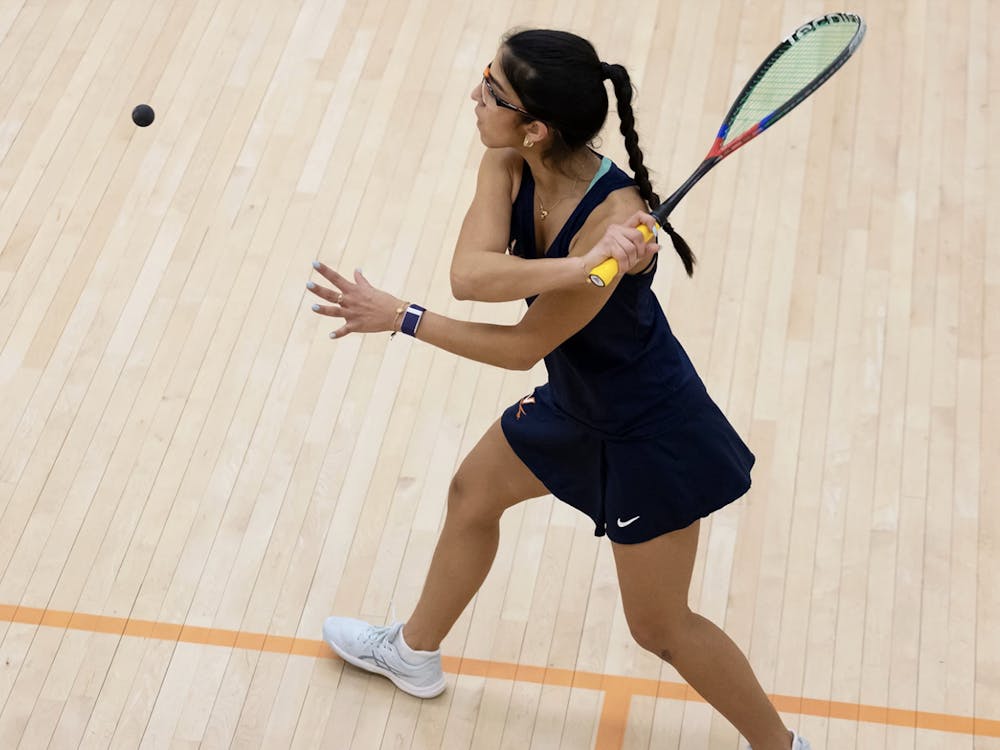With the rapid emergence of social media networks, athletes are now in the public spotlight more than ever. Whether athletes choose to send out tweets from their iPhones or upload pictures on Instagram, outsiders looking in get to know everything about the athletes they follow. Sometimes, athletes post controversial things on social media sites, and bring a lot of attention to themselves in the process. For professional athletes, this is completely acceptable — they don’t have anyone dictating what they can and cannot tweet. But we college athletes don’t have this liberty.
Heisman superstar “Johnny Football” knows exactly what I’m talking about. Johnny Manziel was forced to delete his Twitter account after a two-month rampage thrust him into the spotlight. Manziel had quite the Twitter resume, including everything from pictures of himself holding wads of cash at a casino to tweets about kicking it with Rick Ross and 2 Chainz at 2 a.m. The whole world now knows that Manziel lives a rockstar lifestyle in the offseason, and the Athletics Compliance Department at Texas A&M absolutely hates it. Compliance divisions, for those who don’t know, are parts of athletics departments that monitor what student athletes do. Babysitters, if you will.
Compliance warned Manziel that he needed to cool down with his tweets and the pictures he put up of himself at numerous parties, even though none showed him doing anything illegal. Eventually, Johnny Football lost the long battle with Texas A&M Compliance and is now Twitter-free. His “too frat to care” tweet in response to their request he calm down probably didn’t help, but that’s besides the point.
Manziel didn’t break any NCAA or team rules, yet he’s being reprimanded because Compliance didn’t like the negative attention brought on by his social media presence. Although none of us athletes here at the University spend late nights with Rick Ross — at least none that I’m aware of — we still face the same problem as our good friend Johnny Manziel.
The University’s compliance division is cracking down on athletes who tweet things deemed inappropriate by regulators. They’re sending out 30-day Twitter bans to athletes that don’t conform to appropriate social-media etiquette — full disclosure: I myself am rocking a 30-day ban right now. I understand it’s the job of compliance divisions at every college campus to monitor what athletes do and make sure we aren’t getting into trouble. But they should not revoke our freedom of speech just because we are student-athletes.
We are constantly reminded that while we are athletes, we are normal students as well. If that is truly the case, then why aren’t we treated that way? Last time I checked, the normal student doesn’t have Twitter police.
I understand that it damages the reputation of the team and the University if an athlete goes on a cursing rampage or posts pictures of underage drinking. Without a doubt, these athletes should be punished and compliance divisions have an important role to play in this effort. But it isn’t so much a question of whether they should have authority over our social media presence, but when that authority should be exercised.
The underlying issue is that our social media police aren’t clear on where they draw the line, resulting in seemingly arbitrary censorship. I know several athletes at the University who are banned from Twitter but didn’t swear or post pictures of alcohol — the only two things they tell us not to do.
So if we aren’t breaking any NCAA, team or compliance rules, what’s the big deal?
The inconsistency of the compliance division’s regulations have left many athletes in the dark as to what is appropriate behavior. Without clear guidelines to follow when judging tweets, some athletes get away with things that others don’t. Now you’ve got unhappy athletes.
We also get banned if we favorite a tweet that is deemed inappropriate. This goes for retweets as well. So even if it doesn’t directly come from us, it doesn’t stop compliance or coaches from locking us out of our social media sites.
Even more absurd is the University’s policy is being forced to accept friend request or follows from our coaching staff. If we don’t accept them, we get punished. This seems excessively strict and based on dubious authority.
If that’s not the most ridiculous part of this whole social media crackdown, then this is: rule-breaking may result in a phone call home. Compliance has reinstituted the middle and elementary school policy of calling mom and dad. This policy is as unnecessary as it is comical — particularly given that all of us are, by definition, adults.
There need to be clear guidelines telling each of us what we can and cannot say on social media sites. It’s not rocket science. The frequent banning on Twitter needs to calm down as well. The administration shouldn’t be passing out Twitter bans like red solo cups at a frat party. Until we are no longer put in Twitter jail as the result of arbitrary judgments, we athletes will be unhappy. #FreeJohnnyFootball and #FreeAthletes.






